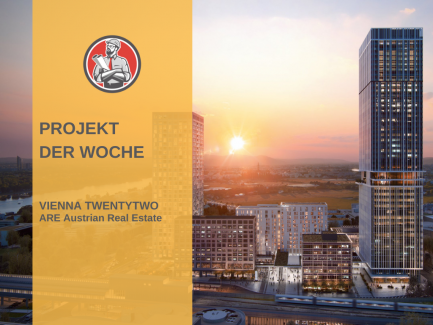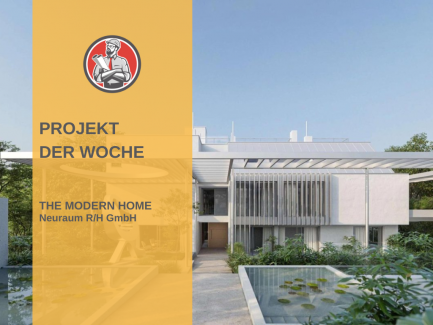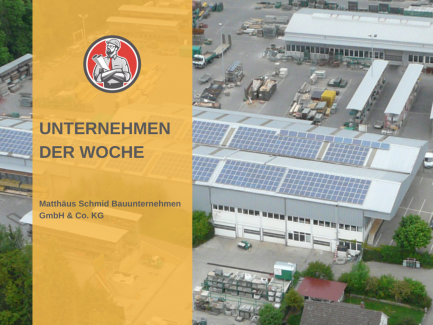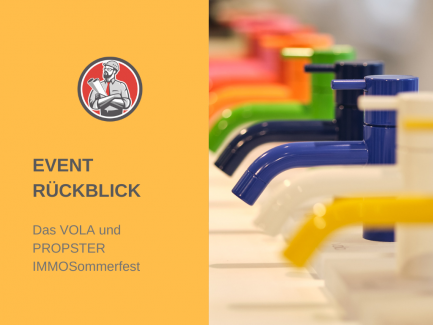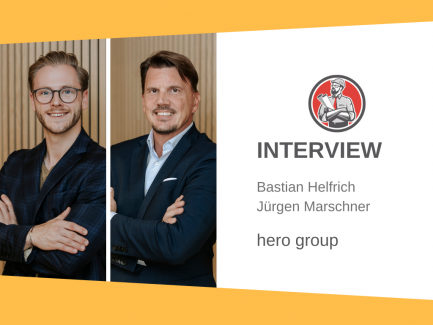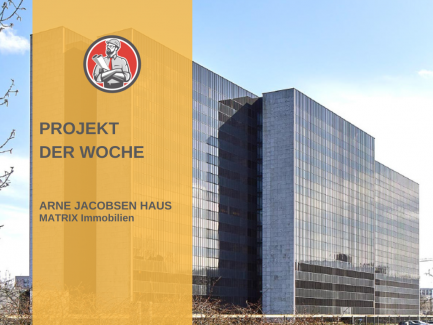Interview with James Dearsley – PropTech is a symptom of the change
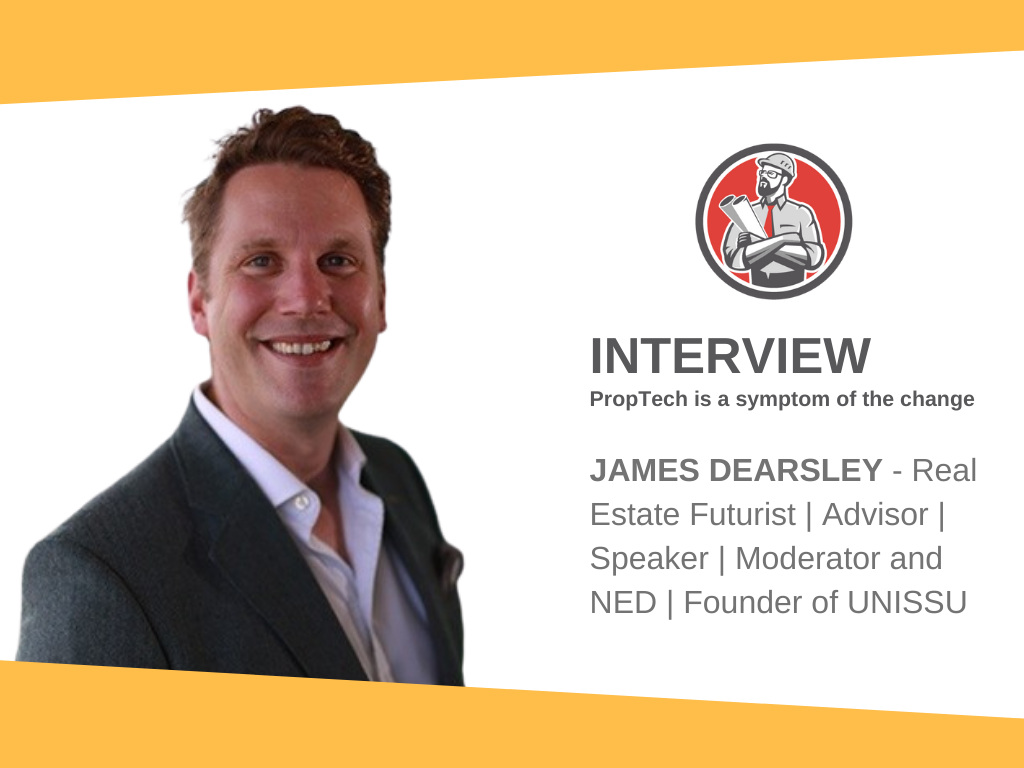
We had our first contact with James Dearsley at the beginning of 2020 and a short time later we were in front of the camera for Connect/Unissu, the proptech platform that James founded together with his partner Eddie in January 2019. At the beginning of June 2022, the opportunity arose for another meeting, as James was on the road as a speaker and made a brief stopover in Vienna. We took this opportunity to chat with James a bit about PROPTECH topics.
The conversation obviously turned into an interview, and it seems like we asked the right questions, because James had a lot to tell. Extensive answers followed on digitalisation topics with a philosophical approach. Have a cup of tea or coffee, sit back and immerse yourself in the world of digitalisation of the real estate industry. Especially as a real estate project developer, you should take a deeper look at these lines.
Aleks Gavric: Great to be with you, James. Please introduce yourself briefly – what is your background and expertise?
James Dearsley: I’m James Dearsley. I am the co-founder of Unissu which has been live now for nearly 3-and-a-half years. We actually conceived the idea at MIPIM 4 years ago and Unissu went live in January 2019.
Before that, I did a multitude of things in the real estate sector and was a passionate advocate for the use of technology within the property sector. I felt that the real estate industry needed to understand the positives from it, whereas I think at the time, and arguably still now, they see it as being a competitive force rather than a collaborative force, which is the way that I see it.
Aleks Gavric: What do you currently expect from the digitisation of the real estate industry, from your point of view?
James Dearsley: So this is a very philosophical question. That’s because the digitalization of the real estate sector is never going to end, it has barely started. Quite often, we talk about digital transformation, as being really what this is about. It’s not about PropTech – PropTech is a symptom of the change – it isn’t actually what is happening, which is digital transformation. When you really look into it, it is a mentality shift, not a technological shift that is happening in the industry.
So, where we are right now is we’re in an education phase that the real estate industry has to go through to understand what digital transformation is, and how it needs to prepare for it and instigate a period of change management over time.
And there are several things that really need to be viewed there. We’ve just completed a very significant research study that involved talking to the innovators that are currently digitalising the real estate market. It provided fascinating insights, especially into just how far we still have to go. For example, one small aspect was looking at the job roles that these innovators have. This was particularly important because the actual backers of this study were an expert recruitment consultant called Cherry Pick People who are obviously very concerned about talent in the real estate sector.
PropTech is a symptom of the change
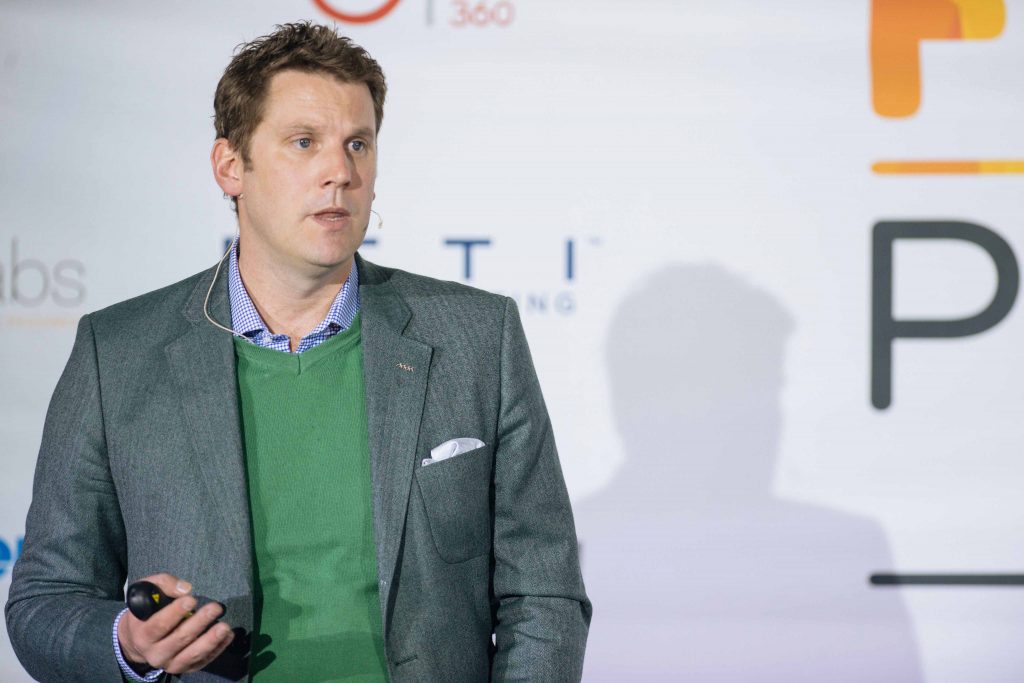
So it was interesting to see that of the 176 innovators that actually responded, there were 136 different job titles! This is a nightmare because the real estate industry doesn’t understand its role as an innovator, yet. Only 13% of the respondents were innovation managers, the rest were anything from asset managers, to facility managers, to CEOs. It was crazy and all over the place. So, if the real estate industry doesn’t understand the role an innovator plays, there is a significant problem. Especially when it comes to the digitalisation of the industry.
The reason I mentioned the role of the innovation manager, in particular, is because there was a fascinating observation from Cherry Pick People around the fact that, just because you’re an innovation manager does not mean that your company understands innovation. And arguably, the role of being an innovation manager in a real estate company is probably not the best job title to have, because it means that there is an excuse within that company or within that industry to say; “well, innovation isn’t my thing. That’s the job of Sally, who’s the innovation manager, go and speak to her.”
Actually, that is where I think the biggest challenge that we face at the moment is. It’s about the culture of the real estate industry being wrong. Innovation and the values of innovation need to be born into every single person’s job. It needs to be ingrained in them that the industry is changing. It’s transforming, it’s going through a period of digital transformation.
It’s not the role of an innovation manager to make the change. This is everybody’s responsibility, from the CEO down to the receptionist, you know? And so, there are some insights in there about my view of the digitalisation of the industry.
A) we have a long way to go
B) we have to be very clear about the role of an innovator, be very clear that their role perhaps is more about change management and transformation then it is actually about PropTech at the moment. And really make sure that the culture of real estate is about managing change and going through a period of change, rather than knee-jerk reactions of all we have to have a censor because we need to manage footfall. No. Why do you need to do that? What is the problem we’re trying to solve? And work through problems like that!
Aleks Gavric: So you’re saying innovation managers should focus on those problems that really need to be solved, right?
James Dearsley: Yeah, but the responsibility is to understand the problem that you have.
Aleks Gavric: So if it’s customers that face a problem, should PropTech’s be recognising what said problem is? And then really try hard to solve that problem before engaging with them?
James Dearsley: Yeah, but I think it goes deeper than that because if you’re really looking to understand digital transformation, an element of that is understanding your customer. But that understanding of your customer is not only about understanding your customer today but also understanding the customer you may have in the future, because they may be two totally different things.
You’ve really got to understand what problem you solve for that customer. By building an understanding of the pain points of customers, and understanding the problems that they face, you give yourself a holistic perspective of the problems that you are solving in the industry. And then that feeds into your innovation cycle, i.e. how can you make that problem go away? How can you improve and make it more frictionless? And therein starts the addressing of the problems.
It’s not a quick process. You can’t take it in isolation. It’s a deep period of research. It involves doing something that perhaps the real estate industry is not comfortable with, which is talking to the end user. And doing it extensively, of course.
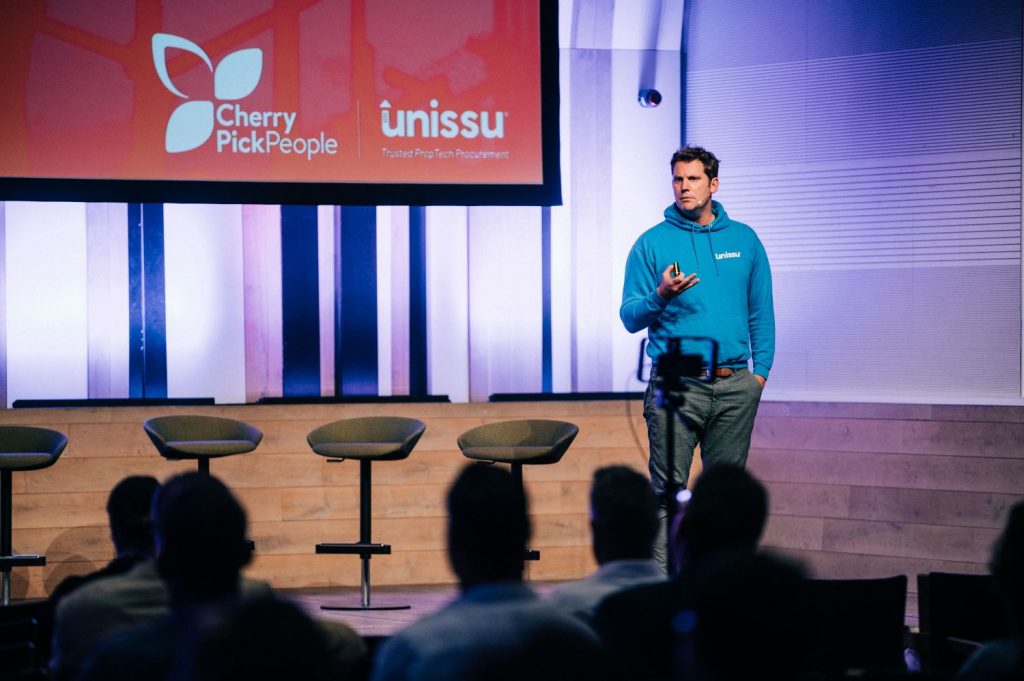
Aleks Gavric: So you think there is a lack of customer centricity across the real estate industry?
James Dearsley: 100%. Two things: there’s a lack of customer centricity, but there’s also a lack of understanding around the data in there as well. So there are two lots of little bits of understanding, and again that fits with the understanding of what digital transformation is, of which there’s an element of the customer, an element of competition – who’s your competition today, and who’s your competition tomorrow – and an understanding of the data that you hold currently and the data you can hold. And then there’s also the understanding, which we’ve already talked about, around what is innovation and innovation as a mechanism of change, which is very difficult.
And finally, understanding of values. What does your company stand for? That is generally seen as the fifth pillar if you use the term from David Rogers’ book, which is very seminal when it comes to understanding digital transformation.
Aleks Gavric: How far has digitisation progressed in the UK, or to be more precise, how high is the degree of digitisation?
James Dearsley: How advanced digitisation is in the UK? There’s an interesting dichotomy of quantity versus quality. If you look at the UK market, the UK has over 900 ‘PropTech companies’. It’s actually around 930. Does that mean the UK is leading the way? No, it just means we have a lot of technology solutions. So, the quantity of solutions doesn’t necessarily equate to a degree of success.
London is most definitely the most popular city for PropTech startups. I don’t think there is any surprise there when it’s also the FinTech capital of the world as well. And there is a natural symbiosis between PropTech and FinTech. But, the problem that we have is that the technology suppliers and the real estate industry still struggle to communicate. You have companies set up by software people, and companies run by real estate people and it’s very rare to have a person that bridges the gap in the middle that understands both real estate and technology.
Aleks Gavric: When did your PropTech journey start, and how did the idea of entering the market with Unissu come about?
James Dearsley: Well, I looked back the other day, and my first board meeting was in 2012. I’ve always been involved in it. I started in the real estate sector with an estate agency that had a strong digital focus. I was a broker and that particular company really wanted you to work in collaboration with the technology. It was around then that I started seeing digital solutions as a force for good because they helped me do my job! That really got me interested in the PropTech space.
When I left full-time employment to set up a marketing agency. I wanted to keep that interest in technology and start helping the real estate industry understand changes. And that’s when I started blogging and as a consequence of that, I started travelling the world and speaking at conferences. We were soon asked to be consultants for several companies, interestingly these weren’t property companies but financial institutions and insurance companies who all had a holistic view of the property sector. My co-founder Eddie and I agreed that, at some point, the real estate industry is going to be procuring technology solutions. We should probably build something which is scalable, so that’s where Unissu started. We decided to take a global approach that involved bringing all of these companies together and identifying ways for the real estate industry to self-serve in finding and ultimately procuring the right technologies.
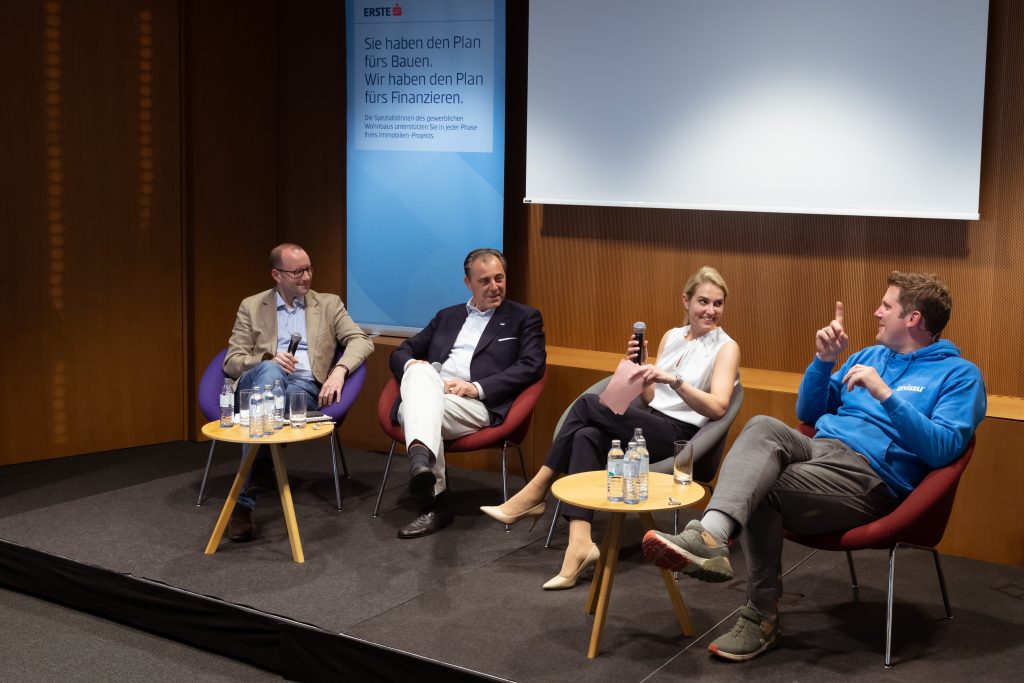
Aleks Gavric: What advice would you give to a young start-up that plans to digitise the UK’s real estate and property scene? What are the pain points that need to be solved?
James Dearsley: I would probably look at it slightly differently. There are nearly 1000 technology suppliers to the real estate industry in the UK. So are you genuinely going to find something which is unique and different? And yes, over the last two years with the pandemic and all of the pressures that come to the industry, at the moment there are opportunities to do some interesting things. But the markets that excite me are outside the developed countries like North America, the UK, and Europe where actually there is a very nascent technology sector, but a very large real estate sector.
So markets like Africa, South America, and some parts of Asia are significant markets which can be capitalised on. If you look at, as an example, Indonesia, it’s a country with a population of 275 million people. THIS is totally insane when you look at the size of the prop tech market there. And so both from a startup advisory as well as if I was advising an investor, I’d be saying: why are you looking in Europe? Why are you looking in North America?
Can you take the model from North America or mainland Europe, which has done well and then tailor that to a market, which has got a large real estate portfolio along with a large population? You don’t really need to do anything tremendous, but you could have a massive total addressable market. You could have a huge business in no time because you take a proven business model into a market that is actually not supported very well and off you go.
Aleks Gavric: What challenges do property developers in the UK face?
James Dearsley: Well, there’s always the very traditional, ‘if it isn’t broken, don’t fix it model’ and secondly, the margins are very small. So that is probably one challenge, which I don’t think is unique to the UK, I think it’s probably everywhere. If you’re working on a 1 or 2% margin, you haven’t got enough money to put into research and development. So it becomes a catch-22 situation.
Aleks Gavric: How do you think building and living will change in the future? Let’s say in 10 to 15 years‘ time?
James Dearsley: It’s particularly pertinent now because we’ve got this big challenge around what does an office mean to somebody? So, this is very much the philosophical debate, I think. And there are several layers to it. Number one, what is home? And arguably, what is an office? I think we have to understand what the purpose of an office is. Before the pandemic, people would say, it’s where I go to work. It’s no longer that. We’ve proven that we can work from anywhere. So there’s a philosophy that is known as jobs-to-be-done, or it’s a strategic development tool. So what is the job? What job does an office serve? Is it where I get my work done most efficiently? I actually don’t think it is, I actually think working in an office is fundamentally inefficient.
So going in a roundabout way back to your question. It starts with understanding the role that different assets play for you. You know, what’s the role of the shop now? Progressively, it’s been moving online. The role of the shop initially was about transactions. I would argue the role of the office moving forward is more about experience and trialing things and testing things. The role of the office before was efficient, and everyone was there, give or take. Now it’s not.
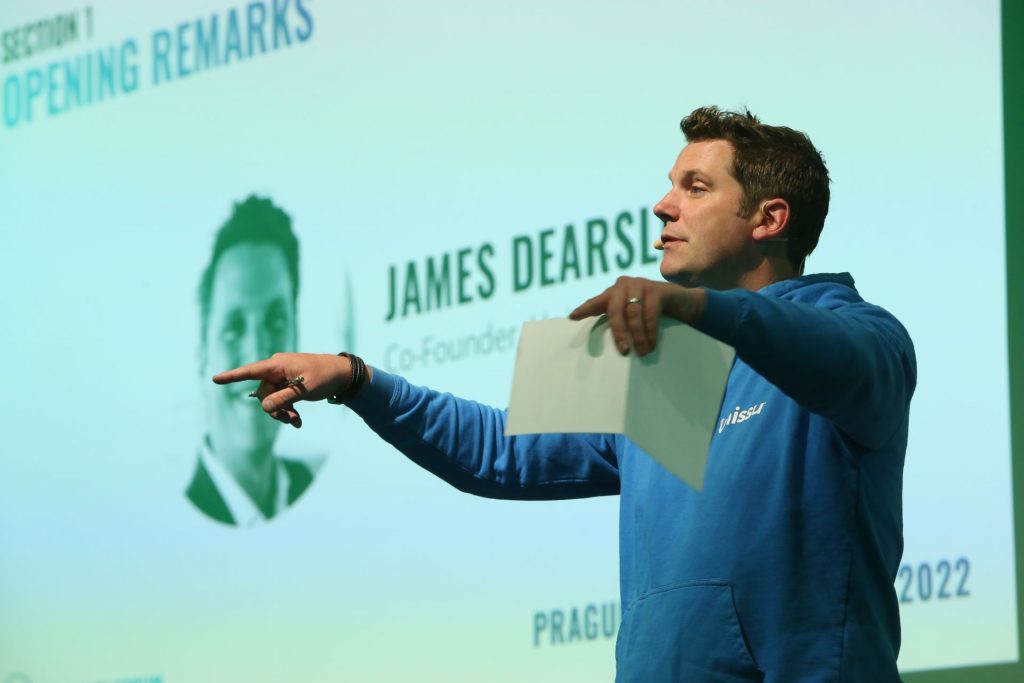
You’re not just there to relax; you cook, you work from home
The role of the office is about the attractions and the inefficiencies of work. It’s where you go and collaborate and talk about ideas. Whereas before, you wouldn’t do that, you would celebrate the efficiencies of the office. Now we celebrate the inefficiency of the office. It’s the same with home. What is home now? It’s become a much more of a mixed place. You’re not just there to relax, you cook, you work from home, your second screening when you’re working whilst watching television, it has become a real mishmash.
So what does that mean for the next 10 to 15 years? All of those questions mean that I don’t think that we will be as clearly defined as we are now about residential, commercial and retail. I think there will be a much closer association. But the fundamentals will not have differed too much. Wherever you are in the world, there is a fundamental lack of housing and there is a fundamental lack of affordable housing. So those two things will have to be seriously considered. I think over the next 10 to 15 years, sustainability and ESG will become the most prevalent discussion and as a consequence of that, what I hope will happen is, that we will stop necessarily building new things, but we will actually understand what retrofitting means to where we are.
Ultimately, just knocking down an old building and pulling up a new one, which is ultra sustainable, is actually the least sustainable thing we can do when hopefully you can actually improve the existing building assets. So, I think the next ten to fifteen years will also have a real focus on that sort of thing as well! I do think the upcoming years will be some of the most fascinating this industry will see, without a shadow of a doubt.
Aleks Gavric: You have already gained a good insight into the needs that PROPSTER solves with its customer platform. In your opinion, what opportunities do you see for PROPSTER in the UK?
James Dearsley: One particular problem in the construction sector is the inefficiencies that it has. A solution like PROPSTER solves the problems of inefficiencies and the reason that is so important is that inefficiencies speak to time and they speak to money. As a consequence, as we go through this period of digital transformation, there is a wide-open door for the likes of PROPSTER to come in. The threat, however, is that they don’t realise it. I.e. they have the blinkers on and are susceptible to ‘if it ain’t broke, don’t fix it’ thinking. That’s the biggest challenge that PROPSTER have. We need to help them open their eyes and not feel threatened.
Strong leadership is taking a serious look at innovation, looking at values, understanding customers, competitors and data. Ultimately, the leaders of today really are those that have been built on intuition. The leaders of tomorrow are going to be those who ask the best questions. Let’s look at the data. What is the data telling us? How can we adapt our strategy based on the data? What is the customer telling us? That is the challenge, I think.
Aleks Gavric: What is your closing word?
James Dearsley: I would only say it depends on who you are. If you’re a technology startup, it’s a case of being patient and keeping plugging away; if you’re a real estate person, don’t be frightened of change – jump in with two feet!
We hope you enjoyed reading those line as much as we did. It needs change because, after all, change is the only constant in life. If you are a real estate project developer and would like to discard old working patterns, break new ground and are not afraid to do so, then contact us. We will be happy to guide you through our < < < FREE DEMO > > >.

